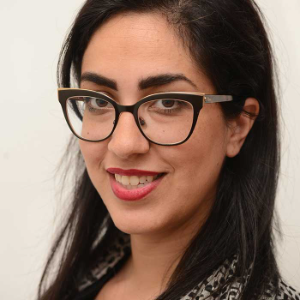Title : Neuro-psychiatric symptoms in civilian survivors of urban missile attacks
Abstract:
Background:
Blast-explosion may cause traumatic brain injury (TBI), that may lead to post-concussion syndrome (PCS) in individuals exposed to the explosion. In military personnel, PCS symptoms are highly similar to those occurring in post-traumatic-stress-disorder (PTSD), questioning the overlap between these syndromes. In the current study we assessed PCS and PTSD in civilian survivors of urban missile attacks. We hypothesized that PCS symptomatology and brain connectivity will be associated with the objective physical exposure to blast, while PTSD symptomatology will be associated with the subjective mental experience.
Methods:
289 residents of explosion sites were recruited from the city of Beer-Sheva in Israel following operation “Protective-Edge”. Participants completed self-reports of PCS and PTSD. Association between objective and subjective factors of blast and clinical outcomes were assessed using multivariate analysis. White matter (WM) alterations and cognitive abilities were assessed in a sub-group of participants and non-exposed matched controls. Non-parametric analysis was used to compare connectivity and cognition between the groups.
Results:
Civilian survivors exposed to blast reported higher PTSD and PCS symptomatology. Among exposed individuals, those who were directly exposed to blast, reported higher levels of subjective feeling of danger and presented WM hypoconnectivity. No significant difference in cognitive abilities was observed. Several risk factors for the development of PCS and PTSD were identified; these include female gender, history of head trauma and time passed from the explosion (for both syndromes); as well as marital status and feeling scared (for PCS).
Conclusions:
Civilian survivors of urban missile attacks present higher PCS/PTSD symptomatology as well as WM hypoconnectivity. Although symptoms are sub-clinical, they might lead to the future development of a full-blown syndrome and should be considered carefully. The similarities between PCS and PTSD suggest these are not distinct syndromes, but rather represent different ends on a spectrum of a combined disorder.
Audience Take Away
- The coexistence of a highly similar set of objective and subjective risk factors for both disorders (PCS and PTSD), highlights the complexity in differential diagnosis between the two. Our findings suggest that these syndromes are not distinct symptom clusters rather may represent a spectrum of a combined disorder that may develop as a result of a physical injury, or as a result of multiple objective and subjective trauma-related factors. This is valuable information for clinicians dealing with diagnostic questions
- Although symptoms are sub-clinical, they might lead to the future development of a full-blown syndrome and should be considered carefully by clinicians




